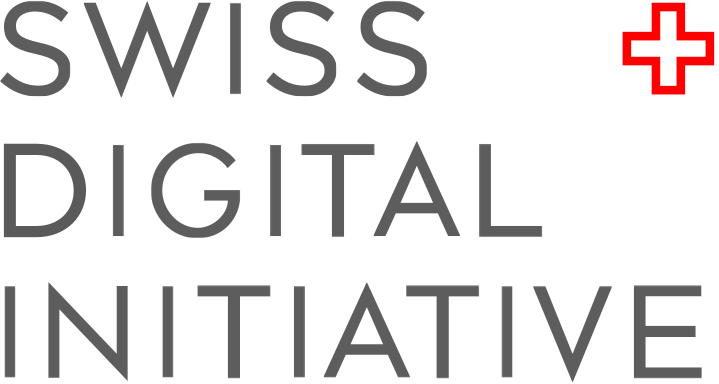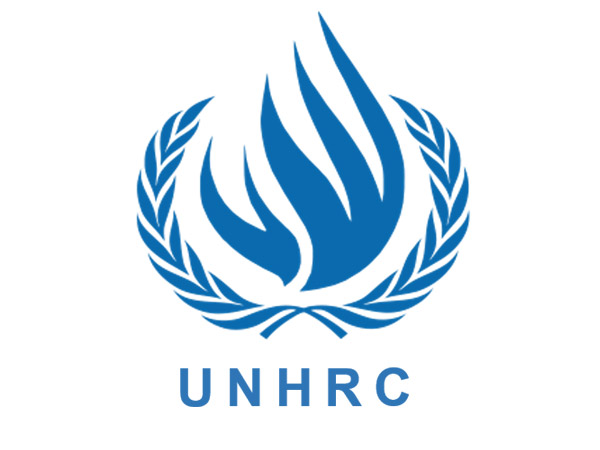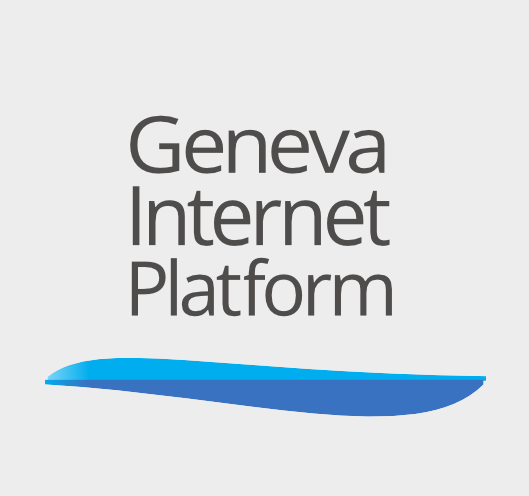Topic: Human rights principles
Event description
Event date: 13 June – 8 July 2022
Representatives of the member states in the Human Rights Council will come to Geneva to partake in 27 interactive dialogues (ID) Special Procedures mandate holders and mechanisms and 9 interactive dialogues with the High Commissioner. The Special Rapporteur on freedom of expression and opinion Ms Irene Khan will present her report (A/HRC/50/29) on media freedom of expression in the digital age in an ID. A public high-level panel discussion will focus on the laws and practices addressing the negative impact of disinformation on the enjoyment and realization of human rights.
For more information, and to register, please visit the official page.

Acronym: SDI
Address: c/o Campus Biotech, Chemin des Mines 9, 1202 Geneva, Switzerland
The SDI is an independent, non-profit foundation established in 2019. In September 2019, the first Swiss Global Digital Summit took place in Geneva to provide a platform to promote in-depth discussions on Ethics and Fairness in the Age of Digital Transformation. This Summit represented the starting point of the Foundation. During the 2020 World Economic Forum in Davos, the SDI celebrated its official launch and the creation of the foundation.
Rooted in Swiss values yet driven by a global vision, the Foundation is headquartered in Geneva, aiming to strengthen and advance a trustworthy digital ecosystem with diverse stakeholders. Its mission is to bring ethical principles and values into digital technologies through concrete projects such as the Digital Trust Label (DTL).
Digital activities
SDI actively works on tangible projects to implement ethical standards in the digital age, with a primary focus on cultivating digital trust.
The awareness of the importance of digital trust is growing. To foster collaboration among like-minded stakeholders, the SDI has compiled a comprehensive report on the digital trust ecosystem. Labels and Certifications for the Digital World – Mapping the International Landscape takes a closer look at 12 of the most relevant initiatives and analyses success factors as well as similarities and differences compared to the Digital Trust Label (DTL) by the SDI. In addition, it provides a regularly updated interactive overview to keep track of the dynamic Digital Trust Ecosystem.
The Digital Trust White Paper provides a comprehensive overview of the dynamic digital trust ecosystem. The compiled knowledge should form the basis for better cooperation and knowledge sharing. Instead of fragmentation, more cooperation is needed to define internationally valid labels and standards. It also provides the theoretical background for the SDI’s ongoing engagement in different working groups, for example, the Working Group on Digital Trust of the World Economic Forum
To assess the Swiss population’s mindset regarding trust in the digital world, a qualitative study Digital Trust from the User’s Perspective was carried out in November 2019.
In a trend map Landscape of the Digital Economy and Society, the trends identified further increase the importance of trustworthy digital services.
In addition, as a member of the World Economic Forum’s Digital Trust Working Group, the SDI actively participates in digital-trust-related activities to advance digital ethics and responsibility. Earning Digital Trust: Decision-Making for Trustworthy Technologies is an insight report published in 2022 emphasising the importance of leaders cultivating digital trust. Measuring Digital Trust: Supporting Decision-Making for Trustworthy Technology, published in October 2023, supports accessing an organisation’s advancement in achieving digital trust objectives and the level of maturity across dimensions.
Digital policy issues
Digital standards
Digital Trust Label
Trust is at the core of every human interaction, and the relationship we have with technology is no exception. The ongoing digital transformation needs to be founded in digital trust to be successful. Users of the digital space are demanding more and more transparency in the technology they use and caring more about the decisions of companies’ leadership. Hence, to address transparency and trustworthiness in digital technology, the SDI developed the first-of-its-kind DTL. Launched in January 2022, the DTL shows that a digital product or service meets mandatory criteria and thus a certain standard of trustworthiness. It also provides more information and transparency for users regarding four aspects: security, data protection, reliability of the application, and fair user interaction (use of AI).
The DTL builds trust between the users and digital technology providers. It benefits all stakeholders::
- Complies with a specific standard and puts the user at the centre: The digital application meets 35 different criteria in 4 dimensions.
- Offers more transparency and information: Users understand what happens with their data and whether an algorithm makes a decision.
- Showcases responsible companies: The DTL shows that a digital application provider takes its responsibilities towards its users seriously.
Priority in addressing digital trust should be given to digital services that are used in fields where
- the handled data is very sensitive and the consequences of using digital services matter greatly;
- automated decision-making algorithms are used
- there is not much choice whether to use a digital service; and
- digital services are rolled out at a high pace and on a large scale.
This particularly concerns digital services in healthcare, the public sector, the media sector, banking and insurance, HR, and the education sector.
Artificial intelligence
Ethical Artificial intelligence
As Generative AI is booming, the SDI is committed to further advancing efforts to guarantee that AI is developed in a secure, inclusive, and trustworthy manner for the good and benefit of all.
As part of ongoing efforts to raise awareness of the importance of digital responsibility and ethics in AI, the SDI has partnered up with the renowned Geneva School of Art and Design (HEAD) to create the interactive experience Adface. The web-based tool uses AI to analyse a person’s face and create a user profile to produce targeted advertisements that fit the assumed profile of the person. This tool shows that AI is already deeply embedded in and influencing everyday life (how AI algorithms influence decisions or automate a person’s decisions) and also how AI algorithms can make incorrect assumptions. Art and design can be valuable allies for raising awareness and stimulating critical thinking around the societal implications of new technologies.
Digital responsibility
The SDI and the Institute for Management Development (IMD) co-developed a resource to help organisations understand Corporate Digital Responsibility (CDR). The CDR Starter Kit, based on insights from top organisations and ongoing IMD research, is here to help businesses kick-start their CDR journey and sustain their digital responsibility efforts. Through lessons, common challenges, inspiration, and additional resources, the Starter Kit facilitates the adoption of CDR within and across organisations.
Digital tools
Start your Digital Trust journey with practical tools!
Digital Trust Criteria Catalogue
An expert group led by the Ecole Polytechnique Fédérale de Lausanne (EPFL) has compiled a catalogue of 35 criteria aimed at building trust for users of digital services. The criteria are based on four categories: security, data protection, reliability, and fair user interaction. The Digital Trust Criteria is the base and inspiration of all the SDI’s projects and trust tools. It is also a clear starting point for other organisations to understand what digital trust is and what they should do to make sure they keep it.
Digital Trust Compass
The Digital Trust Compass is an online self-assessment tool to determine whether your organisation respects and protects the interests of its users and to assess the level of digital trust awareness among end users. It serves as a compass, guiding you along your digital trust journey, and providing the right direction.
Digital Trust Guide
Based on the criteria, the SDI has created a user guide to digital trust. This Digital Trust Guide is designed to assist businesses or organisations that handle user data. The primary objective is to support organisations to establish a robust framework of trust that safeguards the interests of users based on this guide and continue their digital trust journey.

Acronym: UNHRC
Established: 2006
Address: Palais Wilson 52, rue des Pâquis, CH-1201 Geneva, Switzerland
Website: https://www.ohchr.org/EN/HRBodies/HRC/Pages/HRCIndex.aspx
Stakeholder group: International and regional organisations
The Human Rights Council is a United Nations intergovernmental body whose mandate is to strengthen the promotion and protection of human rights around the globe, and to make recommendations on cases of human rights violations. The Council is made up of 47 member states, as elected by the UN General Assembly.
The Council works closely with the Office of the High Commissioner for Human Rights (OHCHR), headed by the High Commissioner for Human Rights, who is the principal human rights official of the United Nation.
Freedom of expression and privacy in the online space are two of the issues covered by the Council in its activities. These have been discussed at UNHRC sessions, and covered in resolutions adopted by the Council, as well as in reports elaborated by the special rapporteurs appointed by the Council. The Special Rapporteur on the promotion and protection of the right to freedom of opinion and expression has issued reports on issues such as: the use of encryption and anonymity to exercise the rights to freedom of opinion and expression in the digital age; states’ surveillance of communications on the exercise of the human rights to privacy and to freedom of opinion and expression; the right to freedom of opinion and expression exercised through the Internet; etc. The Special Rapporteur on the righ to privacy has within its mandate the responsibility to make recommendations for the promotion and protection of the right to privacy, including in connection with challenges arising from new technologies.

Acronym: GIP
Established: 2014
Address: 7bis, Avenue de la Paix, CH-1202 Geneva
Website: https://www.giplatform.org/
Stakeholder group: NGOs and associations
The Geneva Internet Plaform (GIP) is a Swiss initiative operated by DiploFoundation that strives to engage digital actors, foster digital governance, and monitor digital policies.
It aims to provide a neutral and inclusive space for digital policy debates, strengthen the participation of small and developing countries in Geneva-based digital policy processes, support activities of Geneva-based Internet governance (IG) and ICT institutions and initiatives, facilitate research for an evidence-based, multidisciplinary digital policy, bridge various policy silos, and provide tools and methods for in situ and online engagement that could be used by other policy spaces in International Geneva and worldwide. The GIP’s activities are implemented based on three pillars: a physical platform in Geneva, an online platform and observatory, and a dialogue lab.




Social media channels
LinkedIn @Swiss Digital Initiative
X @sdi_foundation